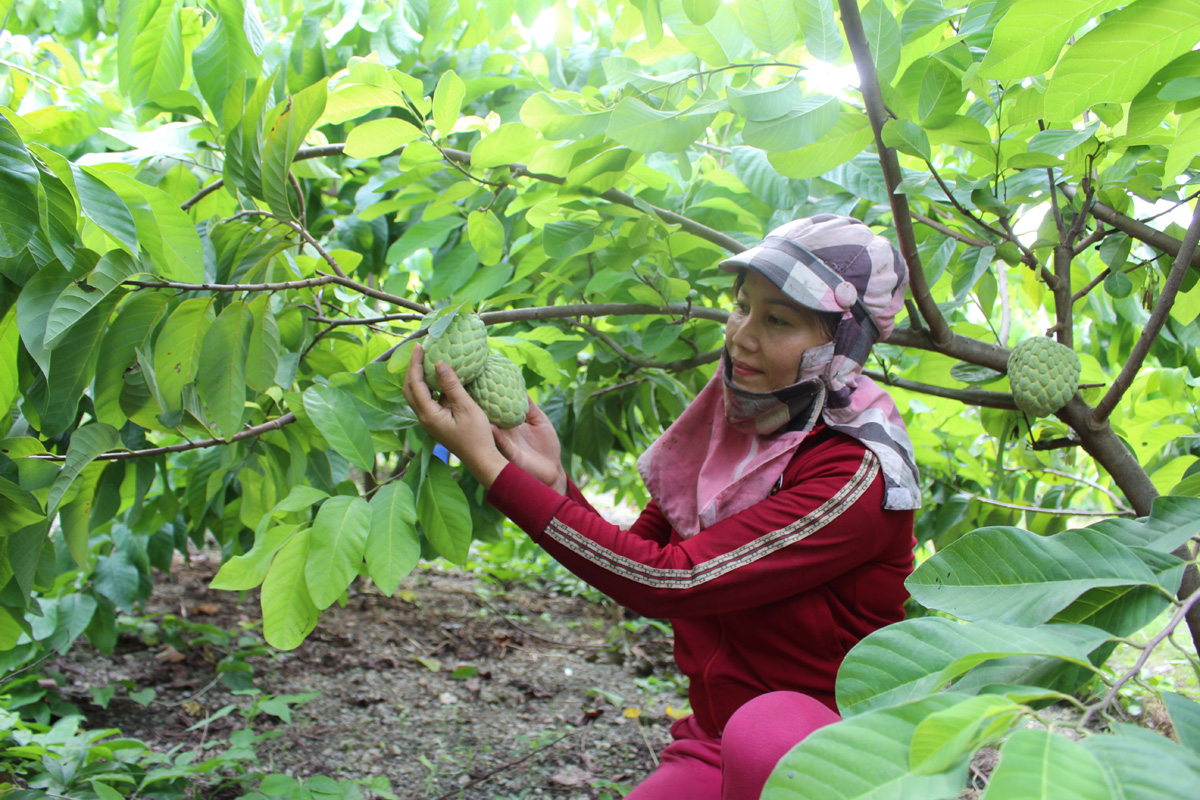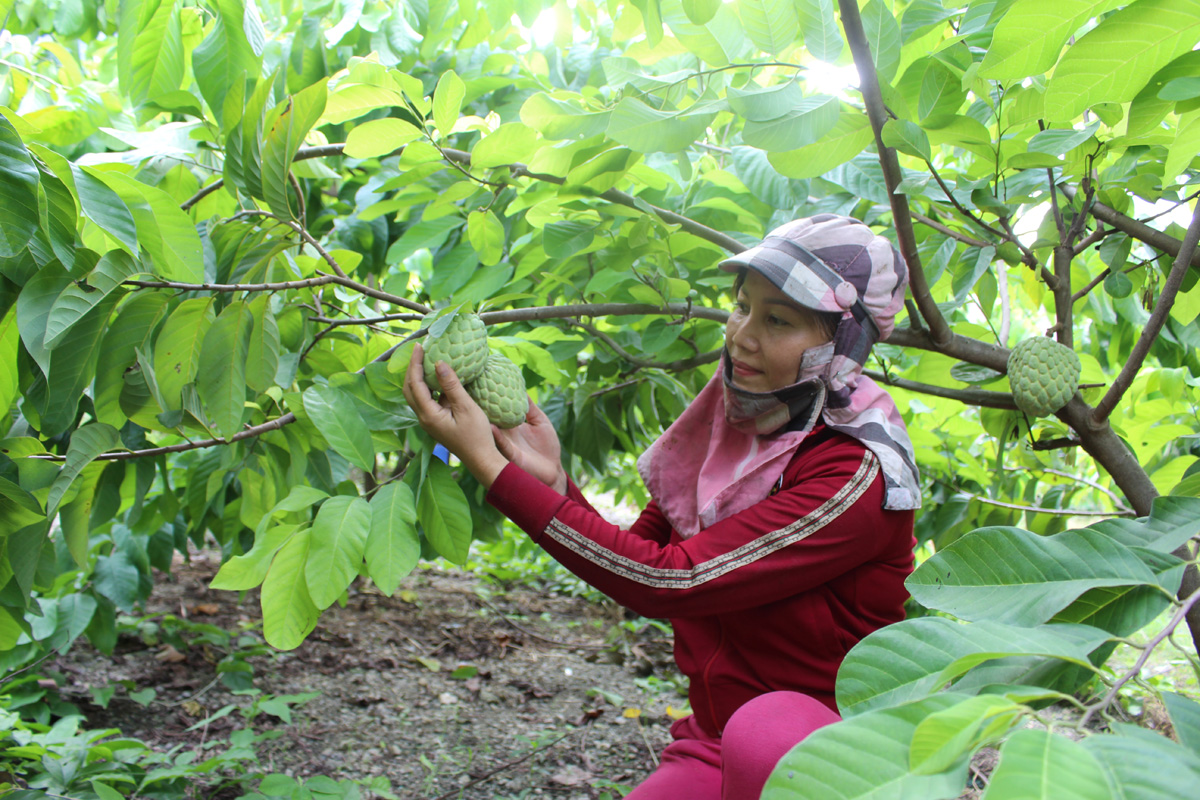(HBO) – Hoa Binh province has carried out an array of policies to support agricultural cultivation, focusing on investment, processing and market development for local farm produce.
Several citrus orchards have been formed in the locality, most of them are in
Cao Phong, Kim Boi, Lac Thuy, Lac Son, Luong Son and Yen Thuy districts. Of the
total 11,500 hectares of orchards, 2,500 hectares have received food safety,
VietGAP and organic standard certificates. Besides, bestowed with favourable
conditions, the province has verdant orchards of longan, custard apple and
banana.
Coming to Xuan Thuy commune in Kim Boi district on eve of the traditional Lunar
New Year (Tet), it was easy to hear locals rumbling the story of the first
longan batch exported to China in the distance.
Dinh Cong Phuc, a resident in Khoang hamlet, said he still remembered the day
when his very first longans were processed for export. He continued taking care
of his over one-hectare longan orchards in line with technical standards to
make the fruits eligible to enter the Chinese market.
Xuan Thuy commune is now home to more than 140 hectares of longans, around 70
hectares of which have been harvested. With the first batch shipped to China,
the commune has affirmed its longan’s quality and brand, making contributions
to bringing stable income to local farmers while opening various opportunities
for the local staple.
Meanwhile, Muong Thang-Cao Phong has glowed with pride of providing fresh
oranges for consumers across the nation. Cao Phong orange was granted with
geographical indication (GI) certification in 2014, and it received the top ten
famous brand title deed two years later. The district is currently cultivating
orange in an area of over 3,000 hectares, more than 1,700 hectares of which are
now available for sale.
With a view to preserving and developing Cao Phong orange brand, the district
People’s Committee has encouraged local farmers to improve product quality such
as planting orange under VietGAP and organic standards. To date, 759 households
have cultivated VietGAP organges in over 1,000 hectares. Furthermore, nearly
1,150 hectares of oranges were granted with food safety certificates.
The district has also paid due attention to trade promotion activities by
organising orange festivals, engaging in trade fairs in other provinces.
Additionally, it has worked to standardise local oranges, and developed the
fruit into a "One Commune, One Product” (OCOP) good.
Dong Tam commune in Lac Thuy district has been famous for off-season
custard-apples, which are produced via creative cross pollination of local
farmers. The off-season fruits are sold at high price of some 60,000-80,000 VND
(2.6-3.47 USD) per kilogramme.
Seeing demands for off-season dragon fruits are
high, particularly during Tet holiday, Bui Van Thanh in Doi Bung hamlet, Dong
Lai commune, Tan Lac district studied to apply science and technology to create
the off-season fruit. Right from October, he lighted his 3,000 square-metre
orchards from 18:00 to 6:00 in 20 days to induce flowering process. With the
method, Thanh and several farmers introduced red-flesh dragon fruit to the
market for decoration of Tet’s five-fruit tray.
He said the price of dragon fruits during Tet holiday doubles that of the
fruits grown in their season.
Farmers in the Muong land have high expectation for a successful new year. They
are all determined to promote potential and try their best to create bumper
crops as well as affirm position of the local agriculture./.



 Off-season custard-apples in Dong Bong village, Lac Thuy
district’s Dong Tam commune were produced via creative cross pollination.
Off-season custard-apples in Dong Bong village, Lac Thuy
district’s Dong Tam commune were produced via creative cross pollination.